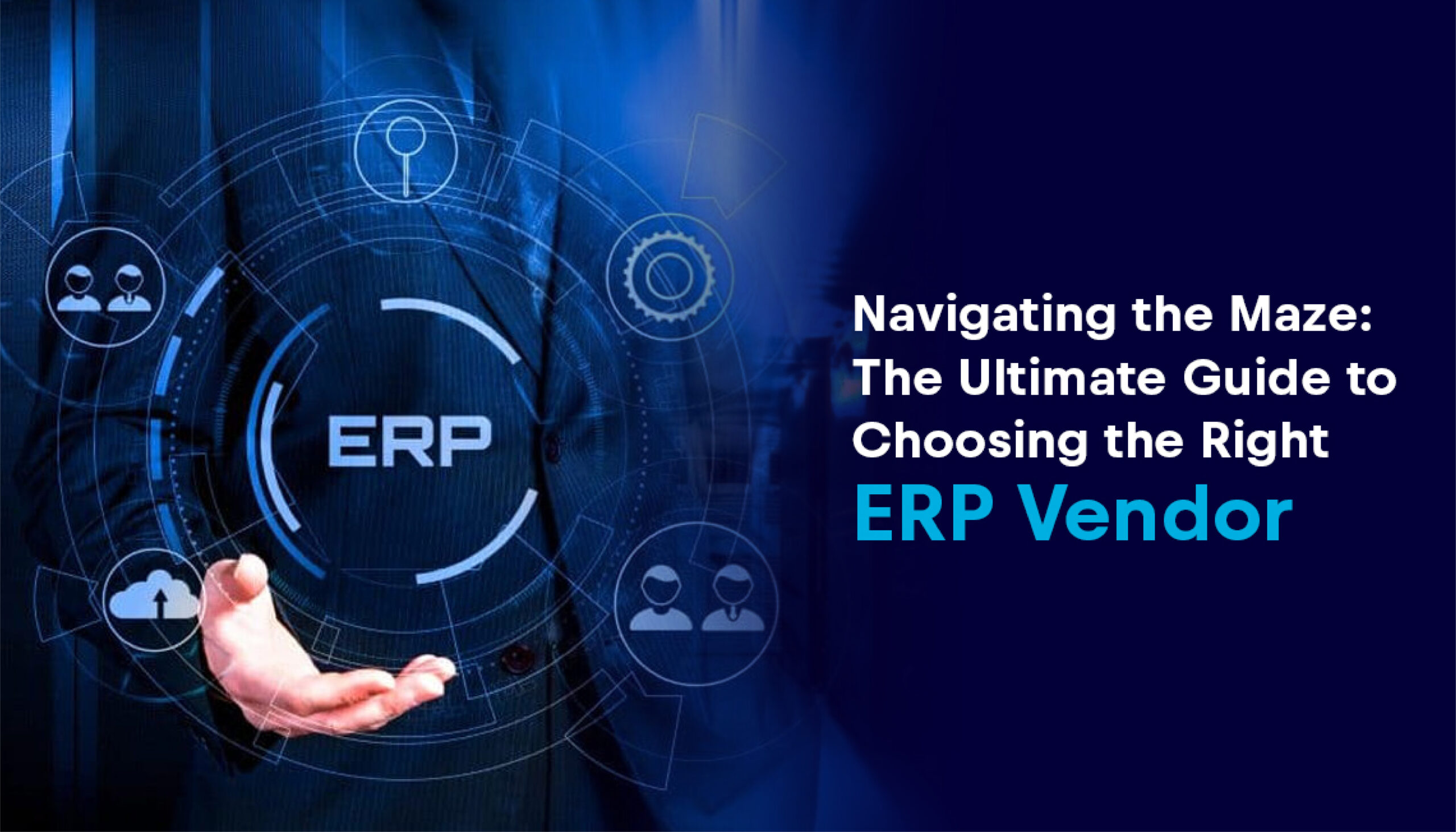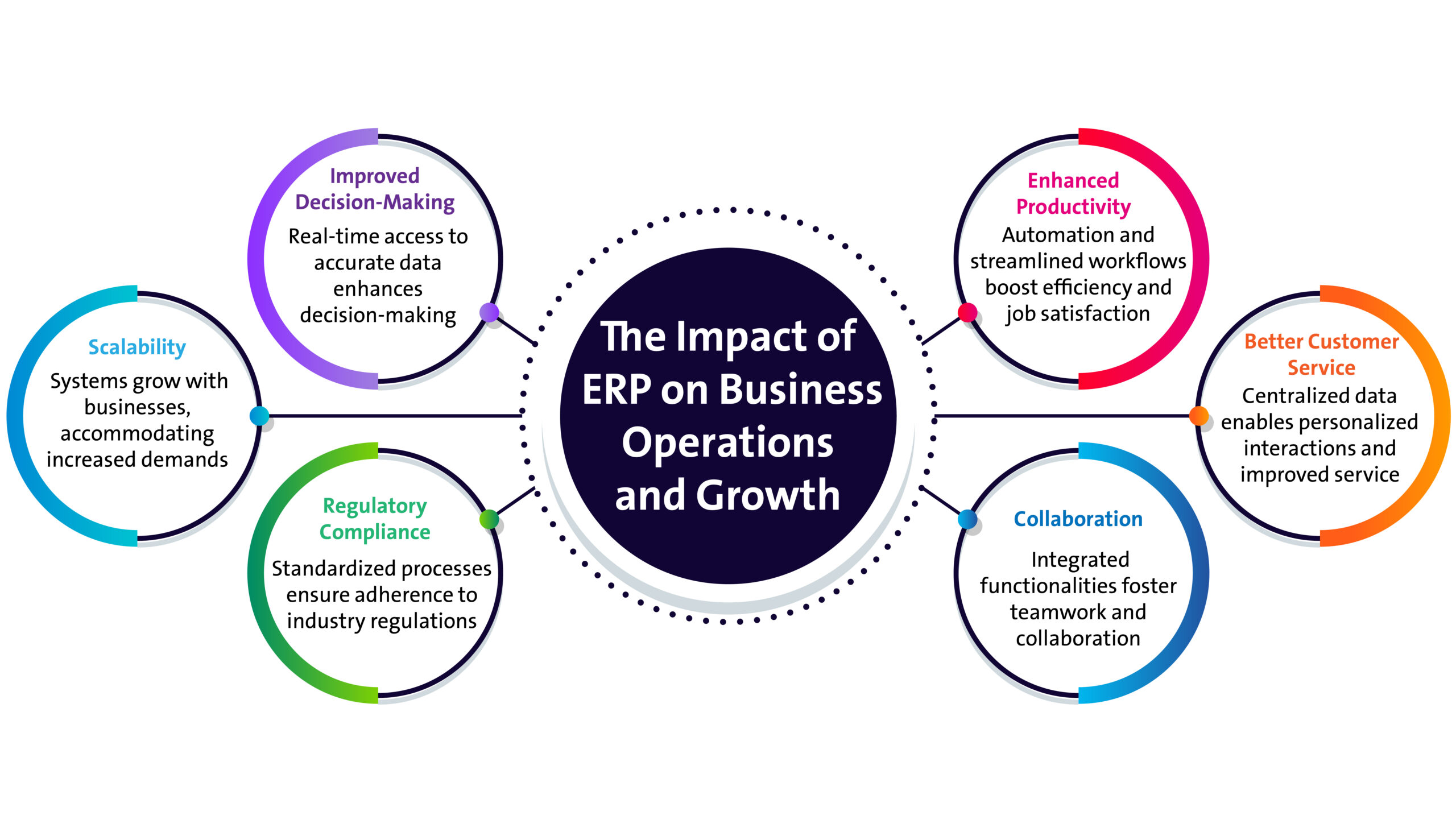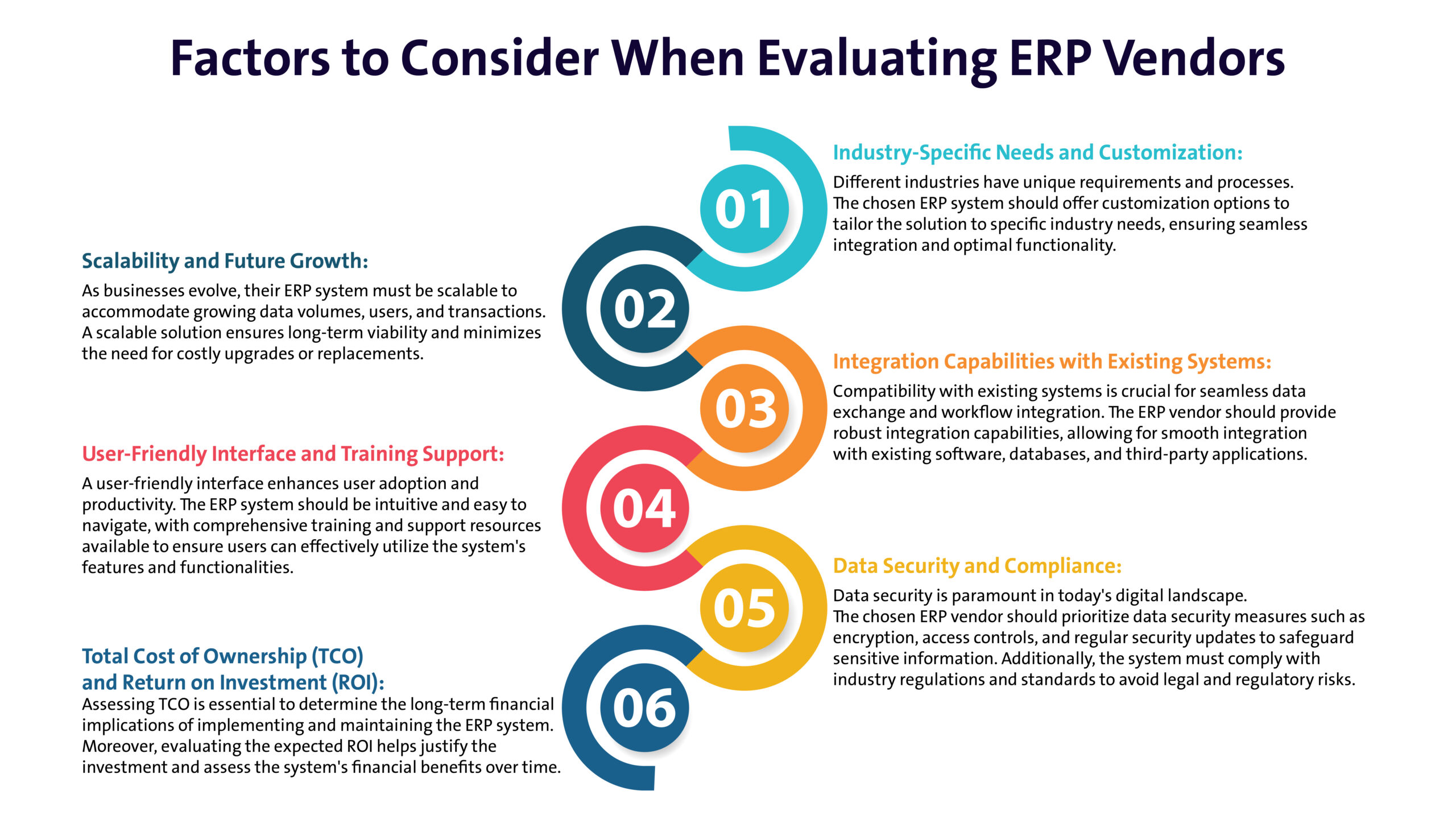
Navigating the Maze: The Ultimate Guide to Choosing the Right ERP Vendor

FoxERP
In today’s digital age, businesses are constantly seeking ways to streamline their operations and boost efficiency. Enter Enterprise Resource Planning (ERP) systems – powerful tools that integrate various business functions into one cohesive platform. However, with numerous ERP vendors flooding the market, selecting the right one can feel like navigating a maze.
Fear not!
This ultimate guide will demystify the ERP vendor selection process and equip you with the knowledge to make an informed decision.
Understanding the Importance of ERP Vendor Selection:
ERP systems serve as the backbone of operations, integrating various functions such as finance, HR, inventory management, and more into a unified platform. The importance of ERP vendor selection lies in its direct impact on operational efficiency, cost-effectiveness, scalability, and overall business agility.
Why Choosing the Right ERP Vendor Matters
Operational Efficiency: A well-chosen ERP vendor provides streamlined processes and automation, reducing manual tasks and improving workflow efficiency. This ensures employees can focus on value-added activities rather than tedious administrative work.
Cost-Effectiveness: Selecting the right ERP vendor involves evaluating the total cost of ownership (TCO), including initial implementation costs, ongoing maintenance fees, and potential hidden expenses. A cost-effective solution maximizes ROI by delivering robust functionalities at a reasonable price.
Scalability: As businesses grow and evolve, their ERP systems must adapt to accommodate changing needs. An ERP vendor capable of scaling their solution ensures seamless expansion without compromising performance or functionality.
Business Agility: In today’s competitive market, agility is essential to staying ahead of the curve. A flexible ERP system from a reliable vendor enables swift adaptation to market trends, regulatory changes, and emerging technologies, empowering businesses to respond quickly to opportunities and challenges.
Data Security and Compliance: ERP systems house sensitive business data, making security and compliance crucial considerations. A reputable vendor implements robust security measures and ensures compliance with industry standards and regulations, safeguarding data integrity and protecting against cyber threats.
Customer Support and Service: A trusted ERP vendor provides responsive customer support and ongoing service to address issues, provide guidance, and ensure smooth operation. Prompt assistance minimizes downtime and maximizes productivity, fostering long-term partnerships built on trust and reliability.
The Impact of ERP on Business Operations and Growth
An Enterprise Resource Planning (ERP) system implementation has a profound impact on business operations and growth, revolutionizing how organizations operate and positioning them for success in a competitive market.

Here are some key ways in which ERP systems influence business operations and facilitate growth:
Improved Decision-Making: Real-time access to accurate data enhances decision-making.
Enhanced Productivity: Automation and streamlined workflows boost efficiency and job satisfaction.
Scalability: Systems grow with businesses, accommodating increased demands.
Better Customer Service: Centralized data enables personalized interactions and improved service.
Regulatory Compliance: Standardized processes ensure adherence to industry regulations.
Collaboration: Integrated functionalities foster teamwork and collaboration.
ERP systems empower businesses to stay competitive, agile, and responsive to market demands, ensuring sustained success.
Trends Driving the Need for ERP Solutions
Digital Transformation: Businesses are embracing digitalization to stay competitive and agile.
Cloud-Based Solutions: Cloud ERP offers flexibility, scalability, and accessibility from anywhere.
Data Analytics: Advanced analytics provide valuable insights for informed decision-making.
Mobile Integration: Mobile ERP solutions enable on-the-go access to critical data and functionalities.
Industry-Specific Solutions: Tailored ERP solutions address unique industry requirements effectively.
Integration with Emerging Technologies: ERP systems integrate with AI, IoT, and blockchain for enhanced functionalities.
Factors to Consider When Evaluating ERP Vendors
When evaluating ERP vendors, the following factors need to be taken care of to ensure the selected solution aligns with the organization’s needs and goals:
1. Industry-Specific Needs and Customization:
Different industries have unique requirements and processes. The chosen ERP system should offer customization options to tailor the solution to specific industry needs, ensuring seamless integration and optimal functionality.
2. Scalability and Future Growth:
As businesses evolve, their ERP system must be scalable to accommodate growing data volumes, users, and transactions. A scalable solution ensures long-term viability and minimizes the need for costly upgrades or replacements.
3. Integration Capabilities with Existing Systems:
Compatibility with existing systems is crucial for seamless data exchange and workflow integration. The ERP vendor should provide robust integration capabilities, allowing for smooth integration with existing software, databases, and third-party applications.

4. User-Friendly Interface and Training Support:
A user-friendly interface enhances user adoption and productivity. The ERP system should be intuitive and easy to navigate, with comprehensive training and support resources available to ensure users can effectively utilize the system’s features and functionalities.
5. Data Security and Compliance:
Data security is paramount in today’s digital landscape. The chosen ERP vendor should prioritize data security measures such as encryption, access controls, and regular security updates to safeguard sensitive information. Additionally, the system must comply with industry regulations and standards to avoid legal and regulatory risks.
6. Total Cost of Ownership (TCO) and Return on Investment (ROI):
Assessing the total cost of ownership (TCO) is essential to determine the long-term financial implications of implementing and maintaining the ERP system. Factors such as licensing fees, implementation costs, maintenance, and support should be considered. Additionally, evaluating the expected return on investment (ROI) helps justify the investment and assess the system’s financial benefits over time.
By carefully evaluating these factors when selecting an ERP vendor, organizations can ensure they choose a solution that meets their current and future needs while maximizing efficiency, productivity, and profitability.
Researching Potential Vendors: Conducting Thorough Market Research
When researching potential ERP vendors, conducting thorough market research is crucial to ensure the selected vendor aligns with your organization’s needs and goals. Here are some effective strategies for conducting comprehensive market research:
Leveraging Online Resources and Reviews:
Utilize online resources such as industry-specific forums, blogs, and review websites to gather information about various ERP vendors. Websites like Gartner, Capterra, and Software Advice provide detailed reviews, ratings, and user feedback on different ERP solutions, such as FOX ERP. Analyze user testimonials, case studies, and ratings to gain insights into each vendor’s strengths, weaknesses, and suitability for your business.
Seeking Recommendations from Industry Peers:
Reach out to industry peers, colleagues, and professional networks to solicit recommendations and insights about ERP vendors they have worked with or are using. Their firsthand experiences and recommendations can provide valuable insights into vendor reliability, customer support, and overall satisfaction. Check industry-specific forums or networking events to connect with peers and gather recommendations.
Attending Vendor Demonstrations and Webinars:
Attend vendor demonstrations, webinars, and virtual events hosted by ERP vendors, such as FOX ERP, to gain a deeper understanding of their product offerings, features, and functionalities. These sessions provide an opportunity to interact with vendor representatives, ask questions, and explore how their solution addresses your organization’s specific needs and challenges. Pay attention to the customization options, integration capabilities, user interface, and overall usability during these sessions to assess the suitability of each vendor.
By leveraging online resources and reviews, seeking recommendations from industry peers, and attending vendor demonstrations and webinars, organizations can conduct thorough market research to evaluate potential ERP vendors, like FOX ERP, and make an informed decision that aligns with their business objectives and requirements.
Analyzing Vendor Proposals and Demos
Analyzing vendor proposals and demos is crucial in the ERP vendor selection process. Here’s how to effectively evaluate and compare vendor proposals and demos:
Assessing Functionalities and Features:
Thoroughly assess the functionalities and features offered by each ERP vendor. Evaluate whether the features align with your organization’s specific needs and objectives. Look for key functionalities such as financial management, supply chain management, human resources, and reporting capabilities. Consider the scalability and flexibility of the system to accommodate future growth and changing business requirements.
Requesting Customization Options and Pricing:
Request detailed information about customization options and pricing from each vendor. Understand the level of customization they offer to tailor the ERP system to your organization’s unique needs. Inquire about pricing models, including licensing fees, implementation costs, ongoing support, and maintenance fees. Ensure transparency in pricing to avoid unexpected costs later in the implementation process.
Reviewing Service Level Agreements (SLAs) and Support Offerings:
Carefully review the service level agreements (SLAs) and support offerings provided by each vendor. Assess the level of support offered during implementation, training, and post-implementation support. Evaluate the vendor’s responsiveness, availability, and expertise in addressing technical issues and providing ongoing support. Consider factors such as response times, escalation procedures, and service-level commitments outlined in the SLA.
By thoroughly analyzing vendor proposals and demos, assessing functionalities and features, requesting customization options, and pricing, and reviewing service-level agreements and support offerings, organizations can make an informed decision when selecting an ERP vendor that best meets their business needs and objectives.
Narrowing Down the Options: Making the Final Decision
Narrowing down ERP vendor options and making the final decision is pivotal. Here’s how to effectively proceed:
Creating a Vendor Shortlist:
After assessing various ERP vendors, like FOX ERP, create a shortlist based on alignment with your organization’s needs, functionalities, customization options, and support offerings. Narrow it down to a select few for further evaluation.
Conducting Reference Checks and Due Diligence:
Before finalizing your decision, conduct reference checks and due diligence on the shortlisted vendors. Reach out to existing users for feedback on their experience, implementation process, and satisfaction level. Verify the vendor’s reputation and track record.
Negotiating Contract Terms and Conditions:
Engage in negotiations with the selected vendors, regarding contract terms and conditions. Discuss pricing, licensing fees, implementation timelines, service level agreements (SLAs), and support offerings. Ensure that all terms are clearly defined to mitigate risks during implementation.
Analyzing ROI and Total Cost of Ownership:
Before finalizing an ERP vendor, it’s essential to analyze the return on investment (ROI) and total cost of ownership (TCO). Calculate the potential financial benefits of implementing the ERP system, such as increased productivity, cost savings, and revenue growth, compared to the initial and ongoing costs of the system.
Consider factors like licensing fees, implementation costs, training expenses, and ongoing maintenance fees. A thorough ROI and TCO analysis will ensure that the chosen vendor offers the best value proposition for your organization’s budget and objectives.
Considering Long-Term Support and Maintenance:
In addition to upfront costs, consider the long-term support and maintenance offered by the ERP vendor. Evaluate the vendor’s commitment to providing ongoing support, updates, and maintenance services throughout the lifecycle of the ERP system. Assess factors like response times, service level agreements (SLAs), and the availability of technical support resources.
Choosing a vendor that offers reliable long-term support and maintenance ensures the smooth operation and optimization of the ERP system over time, maximizing its value to your organization.
By following these steps, organizations can make a well-informed decision aligned with their business needs and objectives. This approach sets the stage for a successful ERP.
Conclusion:
In conclusion, selecting the right ERP vendor is a pivotal decision that can significantly impact your organization’s success and growth trajectory. By following the steps outlined in this guide and staying informed about emerging trends and best practices, you can navigate the vendor selection process confidently and ensure a seamless transition to a robust ERP system.
Remember investing time and effort in thorough research, evaluation, and collaboration will set the foundation for long-term success. Now, it’s time to take the next step and embark on your ERP journey with clarity and purpose.
Recent Posts

FoxERP
Unleashing the Power of ERP Cloud Migration: Benefits, Challenges, and Options
In the contemporary business landscape, Enterprise Resource Planning (ERP) systems play a pivotal role in driving operational efficiency and facilitating strategic decision-making. With the rapid evolution of cloud technology, organizations are increasingly exploring the option of migrating their ERP systems to the cloud to unlock a plethora of benefits and drive digital transformation.

FoxERP
The ERP Revolution: Navigating Enterprise ERP System Challenges
Enterprise Resource Planning solutions can be a lifesaver for businesses. It enables you to automate all your day-to-day business processes in a centralized and streamlined platform. Today, most business organizations implement ERP solutions like FOX ERP to improve business operations, boost data security and data quality, automate workflows, and enhance customer service.

FoxERP
Unlocking Organizational Success by Embracing the Strategic Roadmap to ERP Implementation
Do you know? The global ERP software market is expected to reach a staggering $78.40 bn by 2026, growing at a CAGR of 10.2%. The global ERP software market is estimated to take over 40% of the market share by 2025.



